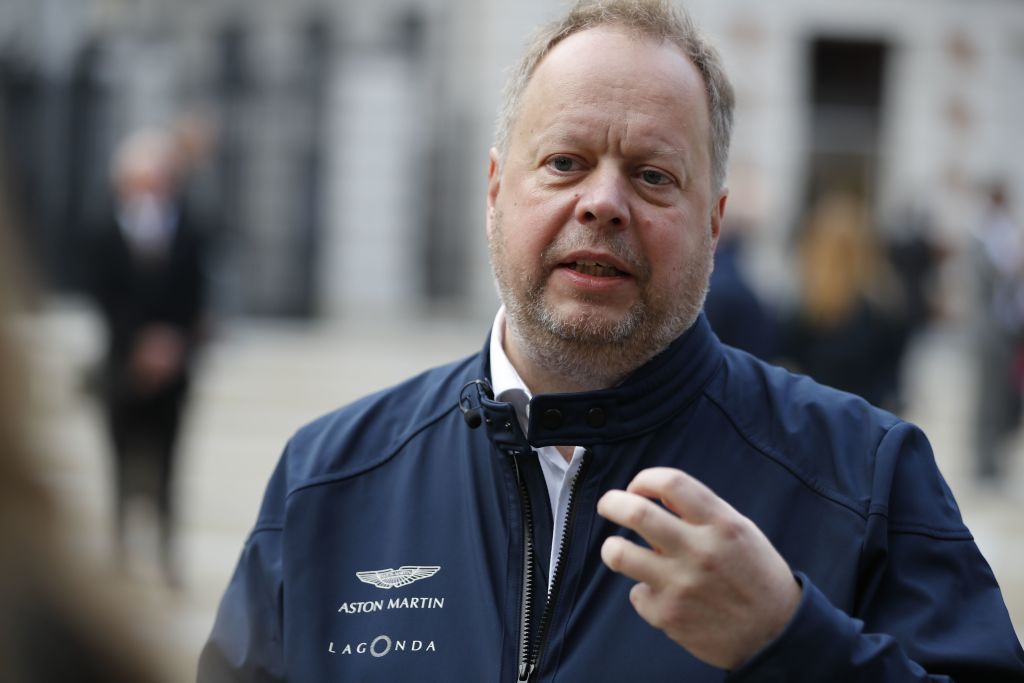Aston Martin shares fall as it warns annual profit will halve

Aston Martin today warned annual core profit could halve as European sales weakened over its peak Christmas period.
The struggling luxury car manufacturer told investors that annual earnings before interest, tax, depreciation and amortisation (Ebitda) will sink to between £130m and £140m.
Read more: Aston Martin swings to £13.5m loss as it blames ‘soft’ UK demand
That is as much as a 47 per cent drop compared to the £247.3m it earned the previous year.
It sent Aston Martin’s share price sinking almost 15 per cent in early trading to 445p, close to its all-time low of 399p in October 2019.
Aston Martin blamed weak demand for a seven per cent fall in wholesale volumes in Europe. Its other geographies performed in line with expectations.
“From a trading perspective, 2019 has been a very disappointing year,” chief executive Andy Palmer said.
“Whilst retails have grown by 12 per cent, our best result since 2007, our underlying performance will fail to deliver the profits we planned, despite a reduction in dealer stock levels.”

Aston Martin will now introduce a cost saving programme ahead of the rollout of its much-vaunted DBX model, with production still on track for the second quarter of this year.
Palmer said today there has been a surge in orders for its new SUV model, with 1,800 ordered since November.
“Whilst we are disappointed with trading performance in 2019, our focus is now on revitalising the business, launching DBX and ensuring profitable growth in the medium-term,” Palmer said.
Weak trading conditions linger at Aston Martin
The company famously associated with James Bond had highlighted challenging trading conditions back in November that affected the UK and Europe in particular, amid weak demand for its Vantage vehicle.
Read more: Aston Martin reveals move into SUV market with ‘critical’ DBX model
Those conditions continued throughout its peak delivery period in December, with the wider UK car industry booking its worst sales in six years in 2019.
However, fellow luxury car manufacturer Rolls-Royce touted the success of its own SUV model today as it reported a 25 per cent jump in sales thanks to its $400,000 Cullinan vehicle.
Could Aston Martin go private?
Markets.com’s chief market analyst, Neil Wilson, called the numbers “pretty horrid” even factoring in Aston Martin’s 12 per cent rise in retail sales.
He warned that Aston Martin must raise cash fast to tackle its mounting debt pile, which could hit £885m for the firm’s latest financial year.
“That net debt figure is a major concern. The only good news is the DBX order book has risen to 1,800 which means Aston can unlock an additional $100m in 2022 notes,” Wilson said.
Warning that this is “a drop in the ocean” compared to the kind of capital the firm needs, Wilson said the argument for taking itself off the stock market is growing for Aston Martin.

“The bond market looks unpalatable but even an equity raise could prove tricky,” he said. “The rationale to go private is impossible to resist – the brand still has the cache to make it appealing.”
Read more: Billionaire Lawrence Stroll could make offer for Aston Martin
Billionaire Lawrence Stroll could make a play for a major stake in Aston martin, it was reported before Christmas.
The company is also hoping for a boost from the new James Bond movie, No Time to Die, which comes to cinemas in April and features four of the manufacturer’s car models.
The company now has a market cap of around £1bn, a far cry from its initial public offering price of 1,900p per share when it went public in October 2018.
Since its London float, the luxury car manufacturer’s stock has sunk 76 per cent.
Main image credit: Getty